Related Research Articles
The search for extraterrestrial intelligence (SETI) is a collective term for scientific searches for intelligent extraterrestrial life, for example, monitoring electromagnetic radiation for signs of transmissions from civilizations on other planets.

The Allen Telescope Array (ATA), formerly known as the One Hectare Telescope (1hT), is a radio telescope array dedicated to astronomical observations and a simultaneous search for extraterrestrial intelligence (SETI). The array is situated at the Hat Creek Radio Observatory in Shasta County, 290 miles (470 km) northeast of San Francisco, California.
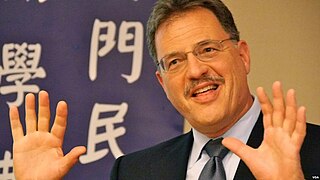
Larry Jay Diamond is an American political sociologist and leading contemporary scholar in the field of democracy studies. Diamond is a senior fellow at the Freeman Spogli Institute for International Studies, Stanford University's main center for research on international issues. At the Institute Diamond served as the director of the Center on Democracy, Development, and the Rule of Law from 2009-2016. He was succeeded in that role by Francis Fukuyama and then Kathryn Stoner.
Coit Dennis Blacker is the Olivier Nomellini Professor in International Studies in the School of Humanities and Sciences at Stanford University. He served as Special Assistant to the President of the United States for National Security Affairs and Senior Director for Russian, Ukrainian and Eurasian Affairs at the National Security Council under National Security Advisor Anthony Lake during the Clinton administration. From 2003 to 2012, he was the director of the Freeman Spogli Institute for International Studies at Stanford University and is a current Study Group Member of the National Commission on Terrorism.
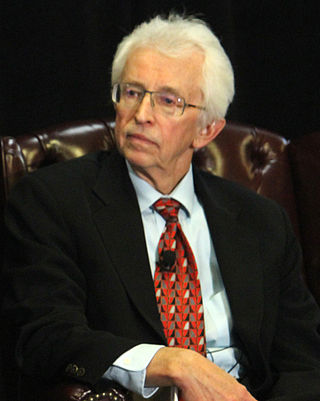
Siegfried S. Hecker is an American metallurgist and nuclear scientist. He served as Director of the Los Alamos National Laboratory from 1986 to 1997 and is now affiliated with Stanford University, where he is research professor emeritus in the Department of Management Science and Engineering in the School of Engineering, and senior fellow emeritus at the Freeman Spogli Institute for International Studies. During this time, he was also elected a member of the National Academy of Engineering (1988) for outstanding research on plutonium and the forming of materials, and for leadership in developing energy and weapons systems.

Norman M. Naimark is an American historian. He is the Robert and Florence McDonnell Professor of Eastern European Studies at Stanford University, and a senior fellow at the Hoover Institution. He writes on modern Eastern European history, genocide, and ethnic cleansing in the region.
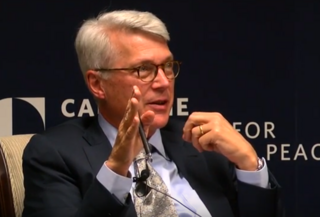
Scott Douglas Sagan is the Caroline S.G. Munro Professor of Political Science at Stanford University and co-director of Stanford's Center for International Security and Cooperation (CISAC). He is known for his research on nuclear weapons policy and nuclear disarmament, including discussions of system accidents, and has published widely on these subjects.
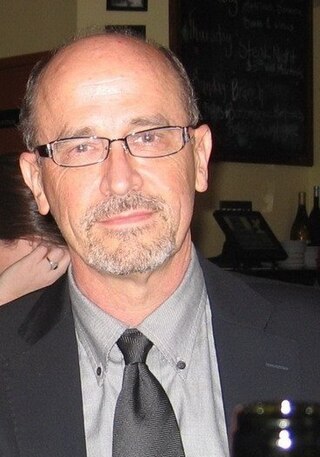
Nicholas B. Suntzeff is an American astronomer and cosmologist. He is a University Distinguished Professor and holds the Mitchell/Heep/Munnerlyn Chair of Observational Astronomy in the Department of Physics & Astronomy at Texas A&M University where he is Director of the Astronomy Program. He is an observational astronomer specializing in cosmology, supernovae, stellar populations, and astronomical instrumentation. With Brian Schmidt he founded the High-z Supernova Search Team, which was honored with the Nobel Prize in Physics in 2011 to Schmidt and Adam Riess.

Amy Zegart is an American political scientist currently serving as the Morris Arnold and Nona Jean Cox Senior Fellow at the Hoover Institution, a senior fellow at the Freeman Spogli Institute of International Studies (FSI), and professor of political science at Stanford University. She is also a contributing writer to The Atlantic. From 2013 to 2018, she served as co-director of FSI's Center for International Security and Cooperation (CISAC) and founder and co-director of the Stanford Cyber Policy Program.
Stanford University has many centers and institutes dedicated to the study of various specific topics. These centers and institutes may be within a department, within a school but across departments, an independent laboratory, institute or center reporting directly to the dean of research and outside any school, or semi-independent of the university itself.

Mariano-Florentino "Tino" Cuéllar is an American scholar, academic leader, public official, jurist, and nonprofit executive currently serving as the 10th president of the Carnegie Endowment for International Peace. He was previously a Justice of the Supreme Court of California, the Stanley Morrison Professor of Law at Stanford University and director of Stanford's Freeman Spogli Institute for International Studies, and an executive branch official in the Clinton and Obama administrations. His publications address problems in American public law, international affairs and international law, artificial intelligence, public health and safety law, and institutions and organizations. He serves on the State Department's Foreign Affairs Policy Board. A member of the American Academy of Arts and Sciences and the National Academy of Sciences Committee on the Social and Ethical Implications of Computing Research, he serves as chair of the board of the William and Flora Hewlett Foundation. He was born in Northern Mexico.

Eileen Chamberlain Donahoe is a former U.S. Ambassador to the United Nations Human Rights Council in Geneva, Switzerland, having been appointed by President Barack Obama in 2009. After serving her term as ambassador, Donahoe was appointed as Director of Global Affairs for Human Rights Watch. In 2014, she was also appointed to the board of International Service for Human Rights. She is also an affiliate of Stanford University's Center for International Security and Cooperation, a center of the Freeman Spogli Institute for International Studies and Executive Director of the Global Digital Policy Incubator at the Freeman Spogli Institute's Cyber Policy Center working at the intersection of governance, technology and human rights.

Kevin Hand is an astrobiologist and planetary scientist at JPL. He is also the founder of Cosmos Education and was its president until 2007. He was working at NASA Ames when he was inspired to form Cosmos Education in 1999 after getting a grant from the Earth and Space Foundation to tour African schools to talk about how education relates to space research.
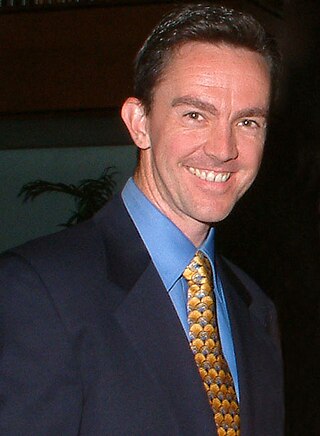
J. Davy Kirkpatrick is an American astronomer at the Infrared Processing and Analysis Center at the California Institute of Technology in Pasadena, California. Kirkpatrick's research was named one of the top ten science accomplishments of the first ten years (1992–2002) of the W. M. Keck Observatory and one of the Top 100 Stories of 2011 by Discover Magazine.
Charles Louis Glaser is a scholar of international relations theory, known for his work on defensive realism, as well as nuclear strategy and U.S. policy toward China. He is a Senior Fellow in the Security Studies Program at MIT and an Emeritus Professor of Political Science and International Affairs at George Washington. He was the founding director of the Institute for Security and Conflict Studies at the George Washington University's Elliott School of International Affairs, as well as a professor of political science and international affairs. His best-known book, Rational Theory of International Politics: The Logic of Competition and Cooperation received an Honorable Mention for 2011 Best Book from the International Security Studies Section of the International Studies Association.

Martha Crenshaw FBA is a political scientist who is prominent for her research on terrorism. She is professor of political science at Stanford University since 2007, as well as senior fellow at the Freeman Spogli Institute for International Studies (FSI) and Center for International Security and Cooperation (CISAC).
Edward M Sion is an American astrophysicist who is Professor in the Department of Astrophysics and Planetary Science at Villanova University. He specializes on the structure and evolution of white dwarf stars and white dwarf stars in explosive binary star systems known as cataclysmic variables.
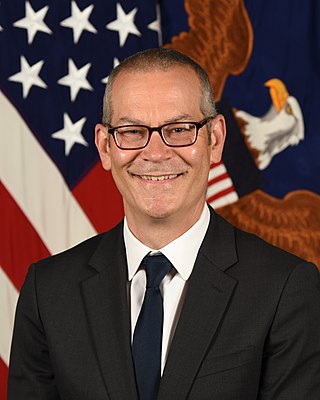
Colin Hackett Kahl is an American political scientist who served as under secretary of defense for policy in the Biden administration from April 28, 2021, to July 17, 2023. Previously, he served as national security advisor to the vice president under then-Vice President Joe Biden (2014–2017). After the Obama administration, Kahl served as a Steven C. Házy Senior Fellow at Stanford University.
Paul K. MacDonald is an American political scientist and a professor of political science at Wellesley College. He is known for his research on global power politics, U.S. foreign policy, and the political and military dimensions of overseas expansion.

Oriana Skylar Mastro is an American political scientist currently serving as a Courtesy Assistant Professor of Political Science at Stanford University and Center Fellow at Stanford's Freeman Spogli Institute for International Studies. She is also a non-resident senior fellow at the American Enterprise Institute and a strategic planner at the US Indo-Pacific Command. Her research focuses on Asia-Pacific security.
References
- ↑ "FSI | CISAC - Christopher F. Chyba". cisac.fsi.stanford.edu. Archived from the original on 2016-06-01. Retrieved 2024-06-17.
- ↑ "Woodrow Wilson School of Public and International Affairs | Display Person". Archived from the original on 2012-07-22. Retrieved 2010-04-19.
- ↑ "Christopher Chyba - Department of Astrophysical Sciences". princeton.edu. Archived from the original on 2015-02-02. Retrieved 2024-06-17.
- ↑ "SETI Institute". Archived from the original on 2011-03-16. Retrieved 2010-04-19.
- ↑ "Voices - Dr. Chris Chyba". Archived from the original on 2010-06-12. Retrieved 2010-04-19.
- ↑ "SETI Institute". Archived from the original on 2011-03-19. Retrieved 2011-05-05.